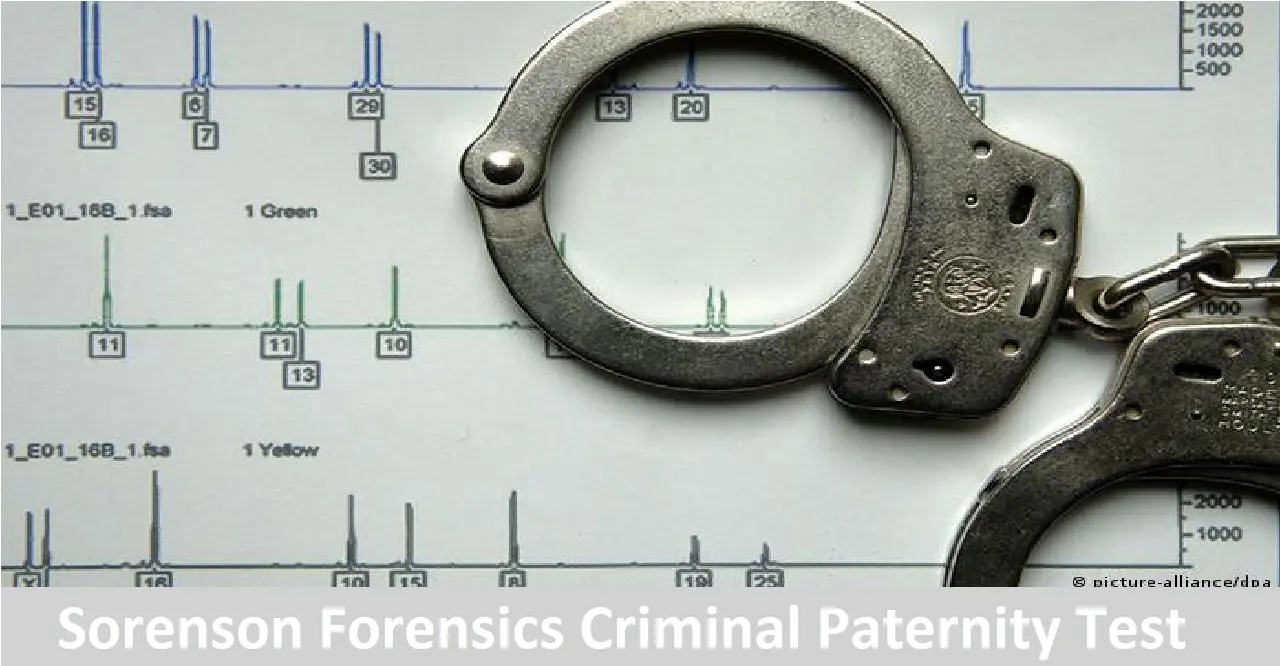Sorenson Forensics Criminal Paternity Test – Everything You Need to Know
If you’re like most people, you have heard about the Sorenson Forensics Criminal Paternity Test in the news. This test has gained a lot of attention lately due to its ability to quickly and accurately determine paternity in criminal cases.
In this blog post, we will provide an overview of the test and discuss the details that are involved in taking it. Stay tuned for more information!
What is the criminal paternity test?
The criminal paternity test is a forensic test that can be used to determine the father of a child. This type of test is typically used in cases where there is suspicion of foul play or when the biological father is unknown.
The paternity test can be performed using DNA samples from the child, the mother, and the potential father. The results of the test can be used to confirm or disprove paternity.
How does the criminal paternity test work?
The criminal paternity test works by extracting DNA from a sample of blood, saliva, or semen. The DNA is then analyzed to determine if it matches the DNA of the person who is allegedly the father.
The Sorenson Forensics Criminal Paternity Test is highly accurate and can be used to determine with a high degree of certainty whether or not a man is the father of a child. The test can also be used to exclude someone as the father of a child.
What are the benefits of a criminal paternity test?
One of the main benefits of a criminal paternity test is that it can provide valuable evidence in cases where an individual is accused of committing a crime. In many instances, DNA testing can be used to prove that an individual was not at the scene of a crime, or that they are not the father of a child.
A paternity test can also help to identify someone who may have been involved in a crime, by linking them to a specific individual through DNA evidence.
Another benefit of criminal paternity testing is that it can help to absolve innocent people from wrongful suspicion or accusation. In some cases, people may be accused of crimes based on faulty eyewitness testimony or circumstantial evidence.
If there is DNA evidence available, it can be used to prove that someone is not the father of a child, and therefore, could not have committed the crime.
Who can order a criminal paternity test?
There are a few instances in which a criminal paternity test might be ordered. If there is suspicion that a child was fathered during a crime, such as rape or sexual assault, then the court may order a paternity test as part of the criminal investigation.
Additionally, if there is reason to believe that a child was conceived through fraud (for example, if someone lied about their fertility status or used artificial insemination without the other person’s knowledge), then a criminal paternity test may be ordered to investigate possible fraud. In both of these cases, the results of the paternity test could be used as evidence in a criminal trial.
Another instance in which a criminal paternity test might be ordered is if there is child support dispute and the alleged father is denying paternity. In this case, the court may order a paternity test to help resolve the issue.
How much does a criminal paternity test cost?
The cost of a criminal paternity test will depend on a number of factors, including the specific laboratory that is used and the type of testing that is conducted. Generally speaking, however, a criminal paternity test will typically cost between $500 and $1,000.
What are the risks associated with a criminal paternity test?
There are a few risks associated with criminal paternity tests. First, the testing process can be quite invasive, as it often requires a sample of DNA from the suspected father and the child. Second, there is always a risk of misidentification if the samples are not properly collected or analyzed.
And finally, false positives (when a man is wrongly identified as the father) and false negatives (when a man is wrongly identified as NOT being the father) can both have serious consequences for families.
Overall, criminal paternity tests should only be used as a last resort, when all other options have been exhausted. The potential risks to both parents and children are simply too great to justify using this type of test in most cases.
Conclusion:
A criminal paternity test can provide peace of mind for parents and children alike. It can also help to identify someone who may have been involved in a crime, by linking them to a specific individual through DNA evidence.
However, criminal paternity tests are not without risks, and should only be used as a last resort. If you are considering having a criminal paternity test conducted, it is important to speak with an experienced attorney to discuss all of your options.
What kinds of forensic testing do you have done? Do you think the Sorenson Forensics Criminal Paternity Test is useful news? Please leave a comment below.







